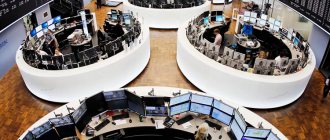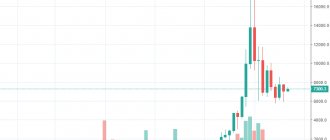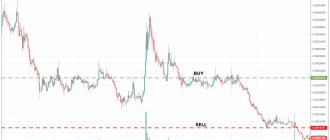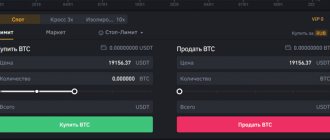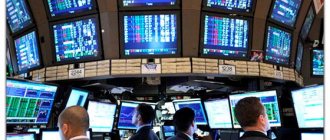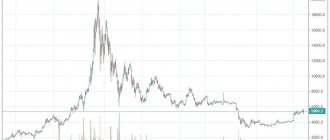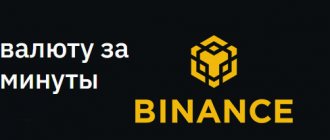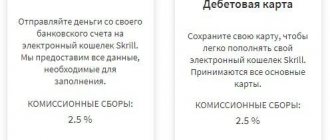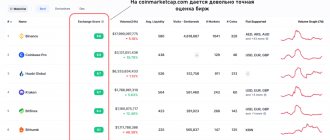Hello, dear readers of the Tyulyagin project! In the article you will find the time and operating hours of the world's main stock exchanges . Stock exchange closing times vary, but they usually close in the evening, except on holidays. A stock market exchange is a trading platform where stocks are traded throughout the day; it functions as an organization that ensures orderly trading and efficient dissemination of stock price quotes on the stock exchange. Some of the major stock exchanges are the Shanghai Stock Exchange, the Swiss Exchange, the London Stock Exchange, the New York Stock Exchange and the Nasdaq , in Russia the Moscow and St. Petersburg Stock Exchanges . Trading usually takes place from Monday to Friday each week. To access any of the following markets and exchanges, you will need a stock broker. The list of the best stock brokers can give you a first idea of some of the top brokers in Russia.
Schedule of trading sessions of the world's stock exchanges (time GMT +0):
Regarding countries' transitions to summer time, special mention must be made, since this parameter is important for all traders. When is the opening of the New York Stock Exchange Moscow time or the opening of the London Stock Exchange Moscow time? What time does the Chinese stock exchange open?
In Russia, the transfer of arrows has been canceled since 2011.
This was later canceled by Japan and China.
In the US and Europe, they switch to winter time in the fall.
In the schedule that you see above, all these points have already been taken into account - keep this in mind.
I would like to note that the Russian Federation used to change clocks to summer time, but after 2011 this procedure was canceled. The abolition of such an action at one time took place in China and Japan. But Europe and the United States in the fall turn the clocks to winter time, that is, back. So, when viewing stock exchange schedules, you need to read an hour ago, Moscow time.
In the spring, many European countries switch to the summer period, and then the opening hours of stock exchanges coincide with the time of the Moscow sessions.
Trading hours in Asia
The Shanghai SSE Stock Exchange opens at 9:30 am local time and closes at 3 pm local time, and has a lunch period from 11:30 am to 1 pm local time. (4.30 - 10.00 SSE opening hours Moscow time)
Tokyo Stock Exchange opens at 9:00 a.m. local time and closes at 3:00 p.m. local time, with lunch breaks from 11:30 a.m. to 12:30 p.m. local time. (3.00 - 9.00 TSE opening hours Moscow time)
The Hong Kong Stock Exchange HKEx opens at 9:30 am local time and closes at 4:00 pm local time, with lunch hours from 12:00 pm to 1:00 pm local time. (4.30 - 11.00 HKEx opening hours Moscow time)
When can I submit an order to buy and sell shares?
To give an order to a broker to buy or sell shares, it is not necessary to wait for the opening time of the exchanges - the main thing is that the broker is working at that time. The trader issues an order to the broker, who opens a deal when the exchange opens and trading begins.
But to buy shares, it is more profitable to give instructions to the broker during trading sessions - this way you can catch the lowest prices and make more profit.
If a trader wants to submit orders independently, then he waits for the opening of the exact exchange on which these specific shares are listed. Take an investing course and you will know more.
Trading hours in Europe
The London Stock Exchange LSE opens at 8 am local time and closes at 4:30 pm local time without a lunch break. (11.00 - 19.30 LSE opening hours Moscow time)
Paris exchange opens at 9:00 GMT and closes at 17:30 GMT without a lunch break. (11.00 - 19.30 Moscow time)
The Swiss Exchange SWX opens at 9:00 am local time, closes at 5:30 pm local time, and has no lunch deadline. (11.00 - 19.30 SWX opening hours Moscow time)
The Frankfurt Stock Exchange FWB opens at 9:00 am local time, closes at 5:30 pm local time, and has no lunchtime deadline. (11.00 - 19.30 FWB opening hours Moscow time)
What can a trader do knowing the opening hours of the world's main exchanges?
The most basic thing is that he can buy any securities only when the exchange is open.
But there is something else important:
- On Mondays, since this is the first working day on most exchanges, you need to be especially vigilant - too many amateur beginners are actively trying to catch up on trading after the weekend. Provocations in the markets in this regard cannot be ruled out.
- If you trade intraday, then you should not leave open positions on weekends and holidays - the market may open at completely different price levels, completely unprofitable for your deposit.
- Extreme caution is needed before long holidays - large traders curtail trading during this period, and others take the opportunity to shake up the market for a while and carry out their speculations.
MICEX Schedule
We present the trading schedule on the Moscow Exchange in tabular form (hours are indicated in capital time).
| Market | Trading session | Premarket | Postmarket |
| Stock | 09:30 — 19:00 | ||
| Foreign exchange, urgent and commodity | 10:00 — 23:50 | 09:45:00 - 09:59:59 (pre-trading period) 09:50:00 - 09:59:30 (collection of orders) | 18:45:01 - 18:49:59 (bonds) 18:40:01 - 18:50:00 (closing auction itself) |
Pre- and Post-Trading and Auction Notes:
- On the MICEX, the opening auction is available only for shares (Russian and foreign), ETFs, depositary receipts, shares, euro and ordinary bonds denominated in euro. It is also available for OFZ traded in T+1 .
- The closing auction is available for shares, euro and ordinary bonds denominated in US dollars, as well as for OFZ in the T+1 order book.
I note that the MICEX website has very visual calendars:
- General – it highlights holidays. Grey colour – options expiration dates.
- Interactive version – in addition to holidays, a brief description of important events on different days is also noted.
As for which instruments to trade on the MICEX, the choice is wide and it is not limited only to Russian stocks or bonds. From 2022, securities of US companies .
Working on the stock exchange does not necessarily involve active trading . As an option, create an investment portfolio and wait for the securities to rise in price. Previously, I published a post on how to form an investment portfolio, in which this issue was discussed in more detail.
What to do before, during and after trading sessions:
How do professional traders trade? Before the exchange opens (several hours before), you can begin placing targeted orders into the system, when the seller and buyer have already agreed on everything in advance.
Transactions using addressless orders are concluded only during the longest period - when the exchange is open.
After the main trading session closes, brokers and traders make final settlements for the day, including rolling over open positions to another day and more. Addressless transactions are not concluded at this time - therefore it is important to know until what time the exchange is open in order to have time to conclude them.
How is the stock market organized?
Many countries around the world have their own exchanges that deal with various market instruments, such as stocks, bonds, futures, etc. The operating hours of different exchanges differ significantly, since they operate in accordance with their time zones. Therefore, within 24 hours you can find a working trading platform on one of the world's exchanges.
The stock market works similarly to Forex. At the beginning of the day, Asian exchanges and platforms in the Pacific region are active. After them, the exchanges of the USA and European countries are included in the work. The terminal presents a continuous work schedule, although various trading platforms can provide liquidity during the day.
This does not mean that you can purchase shares of any company only during the operation of one of the exchanges. For example, Apple shares can be purchased not only on NASDAQ, where the listing took place, but also on Swiss or German exchanges. In 2022, they began to be sold on the MICEX, and on other platforms their number is limited. Also, Gazprom shares can be bought not only on the Moscow Exchange, but also on NASDAQ.
Websites for viewing the operating hours of sites (trading schedules)
The opening hours of stock exchanges depend on their location and specifications. For example, on Asian stock exchanges there is a lunch break, and during religious holidays the sites are closed.
Information about when various exchanges open can be found on special websites:
- Investing is one of the best information and analytical sites that contains work calendars for platforms in various countries around the world. It lists trading hours, holidays, IPO schedules, dividend payment days and other important information.
- On the Stockmarketclock website you can find out the opening hours of major international exchanges, holidays, and also find a brief overview of various trading platforms.
- Market24hclock is a portal on which the exchange trading hours are presented on a special dial.
Since some countries change their clocks from summer to winter time and vice versa, their operating hours will differ at different times of the year. There is no need to memorize the opening hours of the exchange of a particular country, since information portals are always available to all visitors.
Premarket and postmarket
In addition to trading sessions, there are pre-market and post-market hours:
- Premarket is the period before the start of trading, when sellers and buyers agree on the details of the agreement and conclude a deal through the mediation of the exchange. When submitting an addressless application, it is executed during the session.
- The post-market is an auction that is held to carry out settlements. At this time, repo transactions are carried out, and margin positions are carried over to the next day.
Pre- and post-market can last from a few minutes to 1 hour.
Opening time of exchanges on the Forex market
When does the foreign exchange market begin? By its specifics, Forex provides services for speculative financial transactions for traders around the clock. It trades currency pairs, indices and derivatives. For example, the asset of the European currency to gold.
Forex exchanges open every Monday at 0:00, and they close on Fridays at 24:00. Saturday and Sunday are days off.
Forex is an international decentralized foreign exchange market that is not tied to any exchange. It does not have a physical office or center. Transactions on it occur every second, and trading does not stop all 5 days a week and moves from one session to another.
Kinds
All exchanges can be divided according to the instruments that are used when performing financial transactions. These are securities, useful resources, precious metals, raw materials and even intellectual property. There are 4 main types of exchanges:
- Stock . Here they trade securities, which include stocks, bonds and other derivatives. The exchange acts as a guarantor between trading participants. In addition, it ensures the liquidity of financial investments. There are several ways to make money on the stock exchange. This could be the purchase of securities and their subsequent sale at a higher price. Or receiving dividends.
- Foreign exchange . On this exchange, currencies of various countries are freely bought and sold. The exchange rate depends on the political and economic situation in the issuing country. Here they are trying to make money on the difference in the ratio of rates. The Forex market is the most volatile (rapid price changes), so the exchange monitors the fairness of rates very carefully.
- Commodity . They can be specialized (only a certain type of product) or universal. Wholesale trade of metals, raw materials, food products and so on takes place here. Today there are approximately 100 types of goods, but all of them are easy to replace. Therefore, the principle of pure competition applies here. Private investors rarely trade in this market, as it is quite risky.
- Cryptocurrency exchange . The youngest species. Here they exchange real currency for electronic currency and vice versa. There are exchanges that focus exclusively on Bitcoin. But there are also those where they trade different cryptocurrencies. This market is also quite volatile. And it is interesting for investors because you can start here with almost any capital. By the way, such exchanges are often used not only for making money, but also simply for exchange.
Types of exchanges
Each exchange operates only at certain times. For example, currencies and cryptocurrencies can be traded around the clock, but stocks cannot.
There is also Over The Counter (OTC) or so-called over-the-counter trading. It differs in that the two parties enter into a transaction without a central counterparty. For example, when the conditions of the exchange are not suitable for these purposes. This may be a special type of instrument or additional conditions. These transactions are almost never mentioned publicly. Participants trade by phone or through the Bloomberg terminal.
Scheme of operation of over-the-counter trading
Swaps and commissions on Forex
They can have positive or negative values and depend on the characteristics of trading assets.
For example, most brokers charge a “plus swap” for the euro/dollar currency pair when opening a buy transaction. But if the same asset is left overnight with a sell position, then negative values will be calculated for it.
In addition, on Wednesdays such a commission is charged three times. Therefore, when opening a position, you need to pay attention to this feature of the foreign exchange market.
How to access stock trading
A private investor can trade on the London Stock Exchange. To do this, he needs to choose a brokerage office through which he will work online. When choosing a broker, you should analyze all available information about it and study reviews.
The easiest way is to open an account with an international brokerage firm that also works with Russian investors. The second option is to create an account with a foreign broker. There are other methods that involve purchasing American and domestic depositary receipts.
Where is the best place to trade stocks?
For an easy start, I recommend the BKS company. There is a low entry threshold and there is access to most of the world's major stock exchanges. A review of the BCS broker was done earlier, now I’ll just remind you of the trading conditions :
- Through a single account you can access platforms in Russia, Europe, and the USA (access through the St. Petersburg Stock Exchange with more than 900 shares available for trading).
- Deposit from $1 when working on the foreign exchange market, spreads are narrow .
- QUIK and proprietary software are available
- In BKS you can open IIS and receive additional benefits through state tax reimbursement.
BKS | ||
| Minimum deposit | from 30,000 rub. | |
| Transaction fee | At the “Investor” tariff – 0.1% of the transaction amount | On the “Investor PRO” tariff – 0.035% of the transaction amount, with a deposit amount of 900,000 rubles or more |
| Additional charges | If the account has less than 30,000 rubles. 300 rub./month. for access to QUIK and 200 rub./month. for access to the mobile version of QUIK, Maintaining a Depo account is free. Deposit/withdrawal of rubles - free | |
| Account maintenance cost | 0 rub./month . on the “Investor” tariff, on other tariffs, funds are debited only if there was activity on the account this month. | 299 rub./month . on the “Investor PRO” tariff, if there were no transactions in the month - free |
| Leverage | Calculated for each share, within the range of 1 to 2 – 1 to 5 | |
| Margin call | Calculated based on the risk for each security | |
| Trading terminals | My broker, QUIK, WebQUIK, mobile QUIK, MetaTrader5 | |
| Available markets for trading | Foreign exchange, stock, commodity markets, it is possible to connect US platforms (Nyse and Nasdaq) - $1/month | |
| License | TSB RF | |
| Open an account in BCS | Open an account in BCS | |
Exchange selection
Each trader selects an exchange to work with depending on the instrument he intends to trade. In trading, an asset is the main parameter for a speculator’s earnings. All trading instruments have their own characteristics and characteristics. Depends on the following parameters:
- liquidity of the exchange asset;
- volatility;
- the level of supply and demand on the market for the selected instrument;
- profitability and much more.
The volume of transactions on exchanges is highest in the morning, and in the afternoon their liquidity decreases. In addition, it depends on the instruments that are presented on trading platforms, that is, their demand and specificity.
History of education
The history of the London Stock Exchange dates back to 1565, when a site was allocated for the construction of the building. The institution was created on the model of Antwerp (Flemish) - even the architecture of the building was copied from the Flemish one, and later a similar trading system was introduced. The two exchanges have been competing for years.
The real history of the London Stock Exchange began with the opening in 1571. At that time, trading could only be carried out with the permission of the monarch, and the new platform was called the Royal Exchange. At first they did not trade shares, only commodities. The stock market developed much later. Government bonds and securities first appeared here in 1695. However, they were soon kicked out of there - the traders were creating noise. The latter were forced to move to the famous Jonathan's coffee shop.
Active trading took place here and, according to legend, the terms “bulls” and “bears” were coined. Soon the traders were able to raise funds to build their own building. It was first called "The New Jonathan" and then became the Stock Exchange. This happened at the end of the 18th century, but the official opening took place only in 1801. This is how the London Stock Exchange in its modern form appeared. The Royal Mercantile Exchange ceased operation as an independent entity in 1923.
For a long time, trade was carried out according to the rules approved immediately after the opening. Throughout the 19th century, the rise of the British economy contributed to rapid market growth. However, in 1914, with the outbreak of the First World War, this development slowed down. The Great Depression also had a negative impact on the state of affairs. And in 1939, with the outbreak of World War II, an unprecedented event occurred - the stock exchange stopped working for seven days.
In the post-war period, the lost positions were regained. Exchange trading developed rapidly, along with new technologies. In 1987, computer data exchange was introduced, making remote participation in auctions possible.
Exchange
Several major mergers occurred in the 2000s. The exchange itself almost became the target of a takeover; the American NASDAQ offered 2.5 billion pounds, but was refused. However, the holding managed to buy out more than 28% of LSE shares and can now partially control it through the Dubai Stock Exchange. LSE itself acquired Borsa Italiana and then the Indian software company Millenium IT. This was the beginning of the creation of a large joint stock company.
Regulation of the Zhengzhou Commodity Exchange.
ZCE operates in accordance with the Charter of the Zhengzhou Commodity Exchange and the Zhengzhou Commodity Trading Regulations. In this capacity, ZCE acts as a self-regulatory organization (SRO). It carries out regulatory activities on the principles of “openness, fairness and integrity” .
ZCE performs its functions in accordance with the laws set forth in the China Securities Regulation, the Futures Trading Administration Regulation, and the Futures Exchange Regulation.
Pacific region
The only ones worth highlighting here are the Sydney and Wellington stock exchanges; Australia and New Zealand are the key players at this time. In terms of volumes, both sites are outsiders . Mostly shares of local companies are traded here.
| Exchange | Trading session | Premarket | Postmarket |
| NZX (Wellington) | 01:00 — 07:45 | 09:00 — 10:00 | 07:45 — 08:00 |
| ASX (Sydney) | 03:00 — 09:00 | 00:00 — 03:00 | 09:00 - 09:10 09:10 - 09:12 (auction is held) |
As is the case with the Asian region, these exchanges are extremely inconvenient for traders living in the GMT+2, GMT+3 time zones. The time gap is too big. Also, the values given in the table in winter by an hour .
Advantages and disadvantages
Considering the Asian exchange region, it is worth noting some features of trading here.
Main features of trading on Asian exchanges:
- A low spread when working with currency pairs, a narrow price movement corridor - here you can safely use scalping strategies, choosing the most liquid instruments.
- During the opening hours of the Asian stock exchange, the market is not very active - here you can work with securities of large enterprises that are listed only on Asian exchanges.
- Stability and fairly high liquidity of quotes for bonds, stocks, indices - here you can find many successful trading instruments.
There are breakdowns of narrow sideways - due to news, after a long consolidation. It is advisable to use breakout strategies here in case of active movement of other markets (especially American ones, because the markets of this region close immediately before the opening of online trading in the Asian region).- Increased risks when working with currency pairs - due to low volatility, you have to use large leverage.
- Low level of liquidity of many assets - during Asian trading, other sessions are closed.
Why are they not open on Saturday and Sunday?
People need to rest. And since billions of dollars are traded on the currency and stock markets, few people want to trust automated systems. Therefore, most trading platforms and banks do not work on weekends. But even those who continue to provide services do not provide good liquidity.
In Forex, this limitation can be circumvented if you trade on exchanges in different time zones. When the trading session of one exchange ends, it opens on another. This allows for almost round-the-clock trading. But usually dealers who provide such services simply operate quotes on their own servers (they do not send them to counterparties). Or they charge a huge commission.
But the situation with the stock market is more complicated. The fact is that securities are tied to a specific trading platform. And if this platform does not work, then it will not be possible to perform transactions with assets.
History of the Zhengzhou Commodity Exchange.
Zhengzhou has a long history as a center of trade and commerce in Asia. However, ZCE was not created until 1990. In the 1980s, large-scale economic reform programs implemented by Chinese Prime Minister Deng Xiao Ping led to the liberalization of markets.
By 1988, the China Research Group established a grain and oil futures market in Zhengzhou, which became the first official commodity trading market in Communist China. In July 1990, the State Council approved the operation of the renamed Zhengzhou Grain Wholesale Market (CZGWM) on a trial basis.
By August 1990, China established the China Regulatory Commission to oversee the exchange. The governor of Henan Province, where Zhengzhou is located, became the first chairman of the commission. By October 1990, CZGWM opened its operations and began auctioning commercial grain and oil.
In 1993, ZCE officially began operations as a futures exchange and launched contracts for wheat, corn, soybeans, green beans and sesame. Already in 1995, he joined the International Options Market Association and began remote trading operations.
Exchange trading
Depending on the liquidity of the period, you can select a convenient chart with the desired volatility parameters for a specific trading asset that the speculator is interested in. There are times when real chaos occurs in financial markets. Naturally, during such periods it is best not to engage in trading.
Therefore, before you start trading any assets, you need to carefully study the schedule: the opening and closing times of exchanges.
